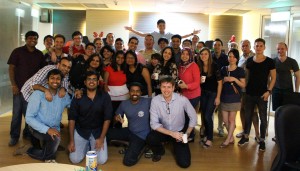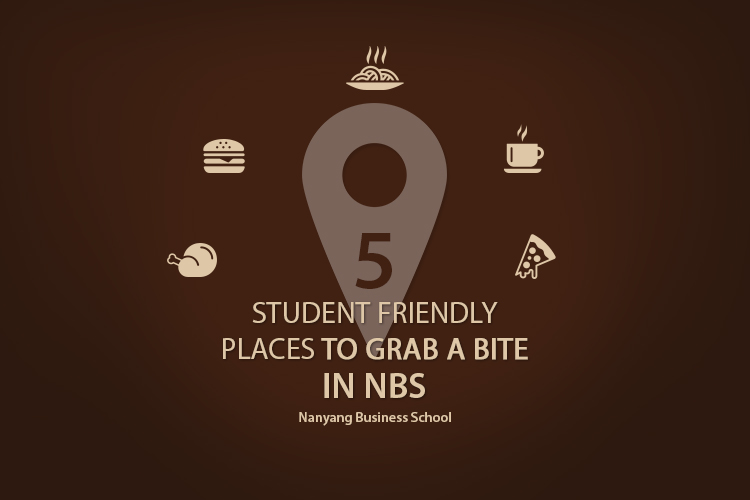By Laura Melina Loeven, posted on Financial Times MBA blog
Every Monday morning, Professor Gibbons walked into the lecture theatre with a smile on his face. He cheerfully set up his laptop, turned on the beamer and settled to wait for his students to come in. During the first trimester of my MBA, Professor Gibbons beat the Nanyang Business School’s MBA batch of 2016 to show up to class first. Every time.
The very first core course to take on my MBA journey was a compact six-session module with the promising title “Leading People Globally”. Not knowing what to expect from this class, I turned up for the first lecture with a sense of curiosity as well as concern and scepticism.
During my undergraduate studies, courses supposed to enhance students’ soft skills were mostly packed with lectures on social sciences, readings on theories, and discussions of abstract concepts. Reading the syllabus made me fear another episode of dry and fluffy elaborations on how to reach and stay on the top of the food chain. I sincerely hoped that it would be different this time.
Luckily, from the first minute of the lecture my scepticism proved unnecessary. I was thrilled to see the professor fueled with energy, engaging with each and every student. Being Irish, Prof Gibbons had a straightforwardness that left students with no choice but to contemplate his suggestions. A seasoned businessman with intensive experience in people management, he held strong views on what kind of conduct is most effective. Despite provoking passionate arguments, he had the unconditional respect of the class at all times.
The cohort being composed of students from various ethnic and professional backgrounds, controversy and disagreement was unavoidable. During case discussions, we inevitably entered heated debates on conflicts of moral or opposing interests. The lessons learnt on how to resolve those conflicts were deemed priceless.
Before participating in the “Leading People Globally” module, I was confident that I was a rather effective learner and knew exactly in which contexts I develop best. When being asked for an example of exceptional learning success, along with many of my batch mates I would have cited the story of a child who touched the hot stove and only then learnt that it is hot. I learn from experiences, and from making mistakes. Then, one of Professor Pat´s first sentences burst my bubble:
“ You do not learn from failure.”
For a moment, I was confused and impulsively raised my hand to object. But the lecturer went on claiming that
“You learn from your reflection on failure”.
To be frank, as a 24-year old MBA candidate with only a few years of working experience in a well-performing multinational corporation, I have not really come to know what it feels like to miserably fail. I have no experience in dealing with fiascoes, nor do I feel prepared to deal with one.
Even more so, I slowly realised that even in those rare cases where I was unsuccessful in pursuing my goals, or experienced rejection, I have not even fully pondered on the root causes to spare myself the pain of identifying my wrongdoings. However, failing to reflect on failure might be even worse than failing in the first place, and I start to acknowledge the risk of falling prey to the same traps over again.
In the weeks after the class, I began to question how good I really was at developing myself or if the notions “lifelong learning” and “continuous improvement” were nothing more than buzz words.
As the average MBA class seems full of self-declared overachievers, participants might not have had excessive exposure to failure themselves. Certainly, nobody should start to seek failures to artificially accelerate their learning curve, but as responsible business school students we should definitely start truly reflecting not only on big scale mistakes, or the failures of others, but also on careless mistakes and day-to-day flops.
As painful as it sometimes is to unveil personal deficiencies, I am thankful for an eye-opening experience that helped me to acknowledge areas for development. Thankfully, there are two more trimesters left to work on those.
published on: Financial Times – FT.com
http://blogs.ft.com/mba-blog/2015/12/01/you-do-not-learn-from-failure/














You must be logged in to post a comment.